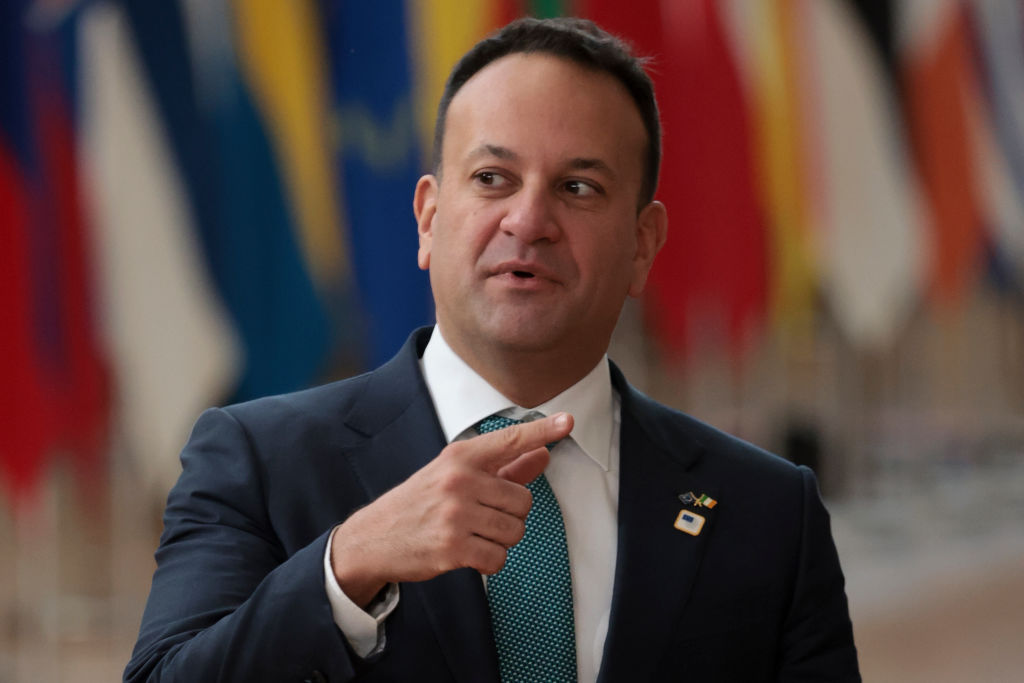A victory for former US leader Donald Trump in the upcoming 2024 American election could pose a “threat” to the country’s democracy, the European Parliament Research Service (EPRS) has warned.
The European Union think-tank made its claim in a document titled Ten issues to watch in 2024, which aims to inform MEPs and Eurocrats about issues that are likely to be prominent this year.
In the document, the EPRS predicted this year’s US election will be a rematch between Trump and current President Joe Biden.
“Polls suggest that barring unexpected circumstances, e.g. sudden health issues, the Democratic Party and the Republican Party are likely to nominate Biden and Trump as their candidates later in 2024,” the paper read.
The EPRS sees Biden as being a “continuity candidate”, while it warned that Trump would likely re-start his “America First” policy platform, “possibly to the detriment of Europe”.
He would also probably push for the deconstruction of the American “deep-state” – allegedly made up of secret and unauthorised networks of power operating independently of government – something the EPRS claimed could threaten US democracy.
“Observers argue that the plan to ‘deconstruct the Administrative State’, which would also affect the Department of Justice, would pose a threat to US democracy,” the researchers said.
They added that the US election could see the roles of both men “reversed”, with EPRS describing Biden as being “particularly vulnerable” due to his perceived failure to properly manage mass immigration and the US economy.
This puts the likely Democrat nominee in a weakened position, the paper argued, similar to that Trump found himself in during the run-up to the 2020 poll.
“Biden’s lack of popularity may come as a surprise to Europeans, as 55 per cent of them approve of his handling of foreign policy, which traditionally is lowest on US voters’ minds, and perceive him in comparison with other global leaders,” the EPRS said.
COMMENT: The U.S. economy is Biden’s biggest liability — and Trump’s greatest strength, writes @njhochman. https://t.co/MxWVAX5eDI
— Brussels Signal (@brusselssignal) December 12, 2023
Researchers also expressed concern that a Trump victory could see a “shift in US attitudes to Ukraine”, with Republicans apparently keen to see a reduction in the amount of American aid being sent to Kyiv.
Such a development would likely impede EU foreign policy in the region, it said, with the bloc being supportive of the Zelenskyy administration’s defence against Russia.
A Trump win is not the only issue that could cause problems for Eurocrats in 2024, the EPRS added.
One of those is what it called the increasing prevalence of AI-powered “disinformation” and so-called “fake reality” over the coming year.
Noting the forthcoming elections in Taiwan, Europe and the US, researchers claimed that digital “fake news” and “doctored” images would likely flood the internet in the coming months.
They also noted that some countries, such as China, had already implemented measures aimed at curbing such AI-created fake news and that European politicians now needed to examine how to “tackle” the threat.
The EPRS also advised MEPs to remain vigilant over efforts to extract reparations from Russian President Vladimir Putin over his war in Ukraine.
Arguing that Ukraine represents “a beacon of freedom and prosperity on Europe’s eastern flank”, it said work aimed at seizing Russian assets by force was already “underway”.
The body admitted that protections afforded to Moscow under international law are problematic, thus making it more difficult for assets belonging to Russia or its central bank to be seized by the EU or its allies.
It added that attempts to resolve these problems would continue in 2024.
What is the real Donald Trump doctrine in foreign affairs? At its core is a belief in American exceptionalism – but it is certainly not isolationism, writes @GElefteriu. https://t.co/VaYFKMw6Qm
— Brussels Signal (@brusselssignal) December 7, 2023





